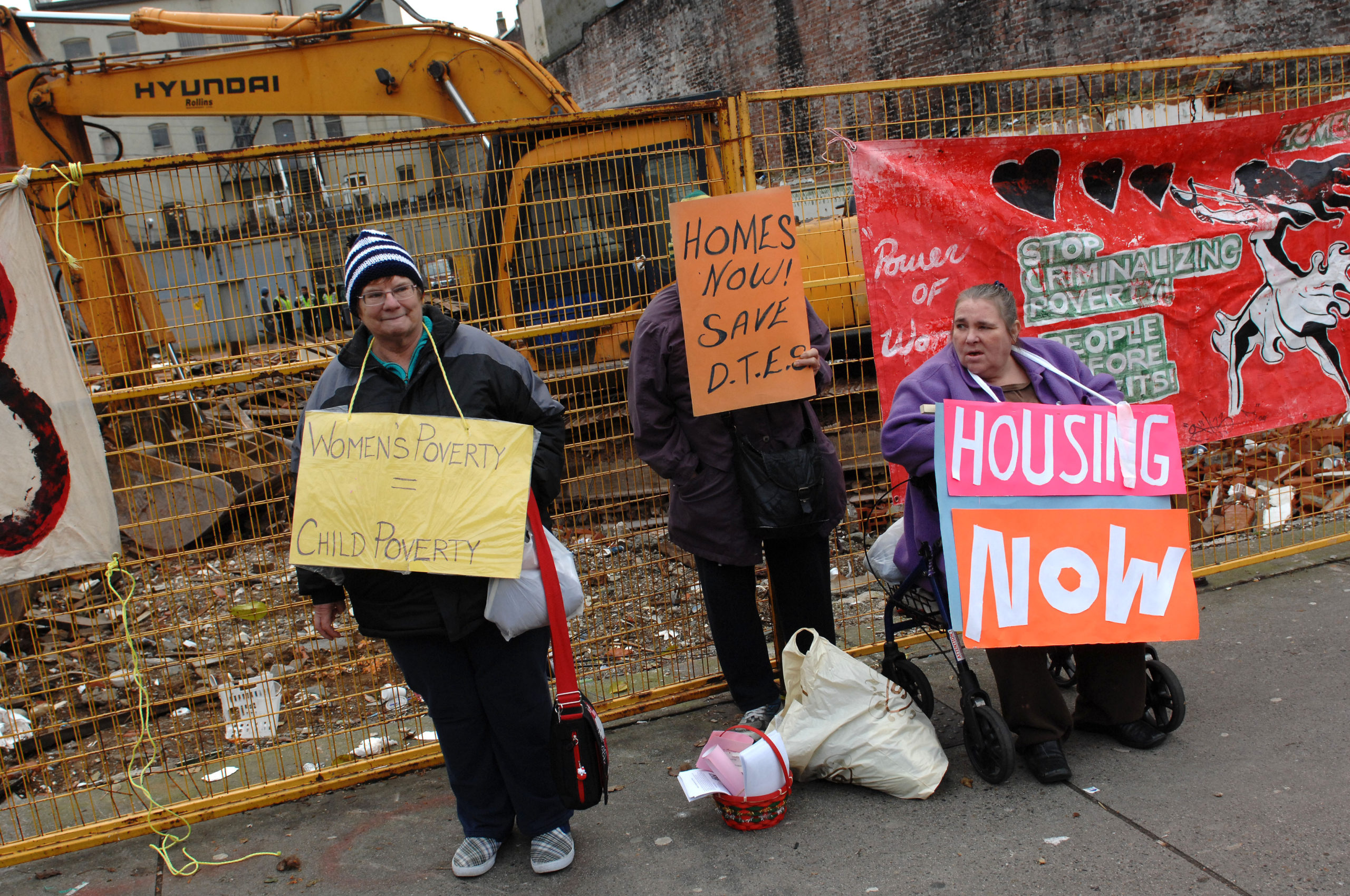On October 15, the city of Vancouver unanimously approved a $1-billion plan to acquire all 105 of the city’s Single Room Occupancy (SRO) hotels and turn them into social housing. Tenants’ rights groups are applauding the landmark move, which they say ends decades of disastrous community housing policies. It was the Covid-19 crisis that finally shed light on the situation and pushed the city to act.
“It’s a watershed moment for the Downtown Eastside,” says Wendy Pedersen, a housing rights activist who founded the Downtown Eastside SRO Collaborative Society. “I don’t think there has been such bold action on housing in our neighbourhood [home to most of these hotels] since the 80s.” She says the city’s decision is finally reflecting the demands of community stakeholders and will prevent thousands of people from ending up on the streets over the next decade.
The city plans to apply for funding from the British Columbia and federal governments to buy and renovate the buildings, most of which are very run-down. The municipality also wants to find ways to control rents and strengthen tenant protections.
The way of the future
Single-occupancy hotels contain small, 100-square-foot units with shared bathrooms. Built in the early 20th century for seasonal workers, the hotels later became home to the city’s most vulnerable and destitute and now house around 7,000 people. This affordable housing stock, half of which is in the hands of private owners, is an important link in the housing chain since it is often a solution of last resort before homelessness.
Community housing stakeholders have long struggled to save these buildings to ensure the availability of low-cost rooms. But a lot of units have been lost because landlords would rather sell them to investors, who then rent them out again at a considerably higher price after doing cosmetic repairs. According to Pedersen, a very common strategy used by landlords has been to “let the building run down” and “make a case that they have to kick everybody out and then the new tenants that come in can pay the higher rent.”
The Covid-19 pandemic has shone a spotlight on the situation, which had been on a back burner for decades. In a report published in June, in the midst of the pandemic, the city recognized the urgency to act: “The opioid overdose crisis, Covid-19 pandemic, and the persistence of homelessness raise the urgency for significant government investment in SRO revitalization and replacement and the protection of this low-income stock.”
The SRO Collaborative Society was among the groups that pushed the city to act. A weekly survey on the Covid-19 situation in hotels allowed the organization to expose the conditions there and share that data with city officials. That meant they had little choice but to seriously address the issue, says Pedersen. “The city realized that these were the most vulnerable tenants in the city, because they share bathrooms in horrible conditions and live in poverty, and the services in their neighbourhood were shutting down.”
Strength through unity
The Community Housing Transformation Centre has played an important role in supporting the efforts of the SRO Collaborative Society. Through its Community-Based Tenant Initiative Fund (CBTIF), the Centre has invested $150,000 over three years in a pilot project of the SRO Collaborative Society that is taking place in eight SRO hotels. The project aims to give tenants the tools and knowledge they need to assert their rights through the creation of tenant associations and the sharing of knowledge and support services. The city of Vancouver’s decision proves that these efforts are already paying off, says Centre program officer Chrissy Diavatopoulos: “It created enormous, impactful change—and we are part of that.”
Among other things, the organization intends to integrate the concept of tenant organizing in future contracts with landlords. For Diavatopoulos, this is “an interesting way of trying to embed tenant organizing, knowledge and tenant-rights education and involvement in a way that is non-threatening,” and she says it will help tenants to become more involved and to improve their living conditions.
Ultimately, Pedersen would like tenants to be in charge of the hotels the city wants to acquire. The grant from the Centre will play an important role in helping achieve this vision, she explains. “The funding will support our organizer, who will be working with tenants and the council in eight hotels to show what can be done. At the end, we will be able to demonstrate the power of tenant organizing.”
Tenants take charge of their future
Community housing activists consider the Vancouver decision to be a major victory. But “there is still work to do,” admits Pedersen. Empowering tenants is the way of the future, and lenders, she believes, will increasingly support this inclusive and democratic approach to vulnerable populations. She would also like community organizations to be inspired by the model: “I would think that other renter advocates […] should be knocking on our door and looking at what we’re doing, because they could do this anywhere!”
Diavatopoulos agrees: “When you involve people in decision-making, […] then the result can be very impactful.” She hopes ambitious projects like the SRO Collaborative Society’s will emerge from other groups and have a significant impact on the future of community housing in Canada.



